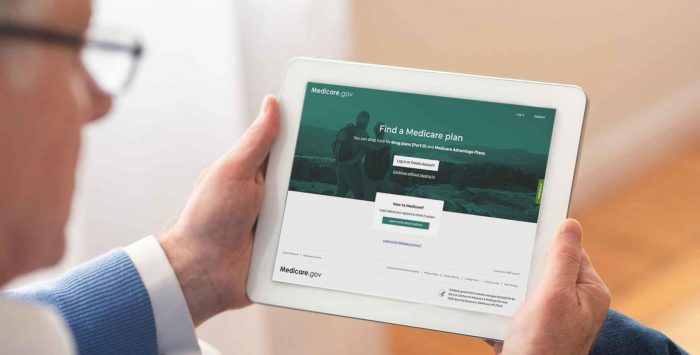No one wants you to be readmitted after a hospital stay – not the hospital, not your doctors, and certainly not you. That’s why it is very important that you receive all the medically necessary care you need before you leave the hospital and that you are set up for appropriate care after you leave the hospital.
What is a hospital readmission?
According to Medicare, a hospital readmission occurs when you have an unplanned return to the hospital within 30 days of being discharged. To qualify as a “readmission,” you must be hospitalized as an inpatient for both stays. Care that is provided while you are under observation is not considered a readmission, even if you stay in the hospital overnight.
The Centers for Medicare & Medicaid Services (CMS) created the Hospital Readmissions Reduction Program (HRRP) with the goal to decrease the need for additional avoidable readmissions. The program reviews readmissions for a number of medical conditions, including but not limited to chronic obstructive respiratory disease (COPD), heart attack, and heart failure. When a patient is readmitted for the same medical problem within 30 days, the hospital could be at risk for decreased payment from Medicare. This incentivize a hospital to make sure patients are stable before they are discharged and helps to optimize care.
What are common reasons for a hospital readmission?
Hospital readmissions can occur for a number of reasons. This can range from discharge before the patient is stable to insufficient patient education about after-hospital care to a lack of follow-up services. Social determinants of health can also play a role. It may be difficult for some people to afford their medications or to adhere to recommended care plans and these patients may relapse. In some cases, people may have food insecurity or housing insecurity that can affect their after-hospital recovery.
CMS offers a Transitional Care Management Program that can help to temporarily mitigate the impact of some of these factors. The goal of this program is to support a patient during the first 30 days after they leave the hospital and go back into the community. This can help to decrease any gaps in care.
The Transitional Care Management Program includes direct communication between the provider and the patient in the first two days following discharge, education for the patient and their caregivers, and a review of the patient’s discharge information and follow-up care needs, including assistance with scheduling those services. It also includes communication with other medical professionals who are involved in the patient’s care, and if needed, referrals to those professionals.
Am I eligible for rehabilitation services after my hospital stay?
While most people are eager to return home, many may benefit from more intensive extended care and rehabilitation services. These services may be provided in a hospital or in a skilled nursing facility and can help to decrease the risk for readmission.
- Inpatient rehabilitation care: Inpatient rehab allows around-the clock nursing care and therapy services at least 3 hours per day five days per week or 15 hours within seven days and no more than three days between sessions. Rehabilitation services can include physical therapy, occupational therapy, and speech-language pathology. Medicare Part A covers these services when the provider determines they are medically necessary. The days you are in inpatient rehab are an extension of your hospital stay where hospital days 1-60 are covered by a $1,632 deductible in 2024. (This deductible increases to $1,676 in 2025.) You will pay more for subsequent days, $408 per day for days 61-90 and $816 for days 91+ up to 60 lifetime reserve days. (These daily copays also increase in 2025.)
- Skilled nursing facility care: Some people may not qualify for inpatient rehab but can get supervised rehabilitation services in a skilled nursing facility (SNF). For Medicare Part A to cover these services, you will need to have been treated as an inpatient for at least three days before being moved to the SNF, not counting the day you are transferred to the SNF. (So to clarify, it you have a two-day inpatient stay, Medicare will not pay for subsequent SNF care.) The three-day requirement could be waived in some cases if you receive care through an Accountable Care Organization (ACO) or Medicare Advantage (MA) plan. The first 20 days you are in a SNF are covered by Part A without a copay but SNF days 21-100 will cost you $204 per day in 2024 (increasing to $209.50 per day in 2025.)
Am I a candidate for home health services?
If you are not a candidate for inpatient or skilled nursing facility rehabilitation, you may be able to get physical therapy, occupational therapy, and speech-language pathology services at home. To qualify for home health services, Medicare requires that you be considered homebound. This means that it is challenging or impossible to leave your home. This could be the case after a recent hospital stay, at least in the short term.
Other services covered by home health care include nursing care, a home health aide, medical equipment and supplies, and social services. These services are covered on a part-time or intermittent schedule and are not intended for full time use.
When and how will my medical provider provide discharge instructions?
Ask your doctor or discharge nurse for concise but thorough discharge instructions in layman’s terms. A healthcare provider should review these instructions with you to make sure you understand them. If possible, try to have a patient advocate or family member present when these instructions are explained.
You should have the opportunity to ask any questions about anything that is unclear. Make sure the information from your hospital stay is communicated with your primary care physician and other providers.
Take your new medication list to any follow-up appointments.
What questions should I ask before I leave the hospital?
Poor coordination and communication between healthcare providers, administrators, and patients can play a role in readmissions, so it is helpful if patients and their advocates know what questions to ask before they leave the hospital.
- What is my hospital diagnosis?
- What symptoms do I need to watch for? Are there any “red flags” to monitor?
- When (and with whom) is my follow-up appointment?
- What medications should I be taking?
- What do I do and who do I contact if I notice a concern or change?
- Has my primary care provider been notified about my stay?
To learn more, the author suggests the following articles: Hospital Discharge Planning Checklist, Tips for a Better Hospital Stay, and A Safe Return Home from the Hospital. If you believe you are being discharged too soon and do not have adequate support to care for yourself, talk to your doctor or discharge planner about your options. You have the right to appeal the decision to discharge you.
Tanya Feke, M.D. is a licensed, board-certified family physician living in New Hampshire. As a practicing primary care physician in Connecticut and an urgent care physician in New Hampshire, she saw first-hand how Medicare impacted her patients. In recent years, her career path has shifted to consultant work with a focus on utilization review and medical necessity compliance.
Dr. Feke is an expert in the field, having Medicare experience on the frontlines with both patients and hospital systems. To educate the public about ongoing issues with the program, she authored Medicare Essentials: A Physician Insider Reveals the Fine Print. Her analysis of Medicare issues is frequently referenced by the media and she is a contributor to multiple online publications. As founder of Diagnosis Life, LLC, she also posts regular content about health and wellness to her site at diagnosislife.com.
Footnotes
Tags: caregiving, hospitalization, in-home care, inpatient, patient advocate, rehabilitation




